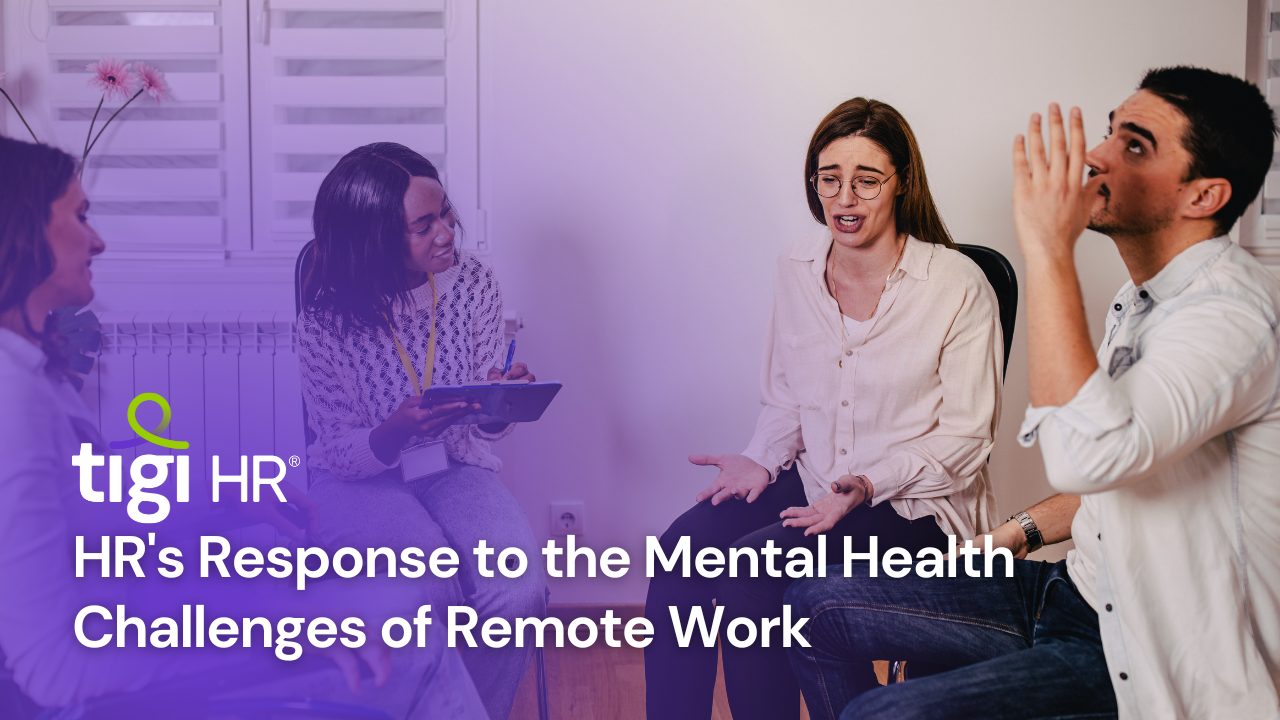In recent years, remote work has become a norm for many organizations, bringing about a seismic shift in the way businesses operate. While this flexibility offers numerous benefits, it also presents significant mental health challenges. Human Resources (HR) departments have been thrust into a critical role, tasked with developing strategies to support employee well-being in this new work landscape. In this article, we explore HR’s response to the mental health challenges of remote work and the importance of an SEO-friendly and plagiarism-free approach to disseminating this vital information.
The Remote Work Revolution
The advent of remote work has undoubtedly revolutionized the traditional workplace. Employees now enjoy greater autonomy, flexibility, and the elimination of daily commutes. However, these advantages come with a unique set of mental health concerns. Isolation, blurred work-life boundaries, and the absence of face-to-face interactions can all contribute to increased stress, anxiety, and burnout among remote workers.
HR’s Crucial Role
HR professionals have become the front-line responders to these challenges. They play a pivotal role in ensuring the well-being of remote employees. Let’s delve into some key strategies HR departments are implementing to address these concerns.
1. Building a Culture of Support
One of HR’s primary tasks is to foster a culture that prioritizes mental health. They can achieve this by promoting open communication and destigmatizing mental health discussions. Creating safe spaces for employees to share their concerns is essential in remote work environments.
2. Providing Resources and Training
HR departments are now offering resources such as mental health webinars, counseling services, and stress management workshops. These tools equip employees with the skills and knowledge needed to navigate the unique challenges of remote work.
3. Redefining Work-Life Balance
Maintaining a healthy work-life balance is more challenging in remote settings. HR is working on initiatives that help employees set clear boundaries and encourage them to disconnect from work when the workday ends.
4. Monitoring and Assessing Well-Being
HR teams are utilizing technology to monitor and assess employee well-being. Regular check-ins, surveys, and feedback mechanisms enable HR to identify issues early and tailor support accordingly.
5. Promoting Social Interactions
To combat isolation, HR is encouraging virtual team-building activities, online social gatherings, and chat channels for casual interactions. These initiatives foster a sense of belonging and camaraderie among remote teams.
6. Flexible Work Arrangements
HR is revisiting policies related to flexible work arrangements, allowing employees to adapt their schedules to better suit their mental health needs.
SEO-Friendly Content: Why It Matters
Now that we’ve explored HR’s response to remote work’s mental health challenges, let’s discuss the importance of crafting SEO-friendly content when sharing this information.
SEO, or Search Engine Optimization, is crucial in ensuring that your valuable insights reach the widest possible audience. By optimizing your content for search engines, you increase its visibility in search results, making it more likely to be discovered by HR professionals seeking guidance on this critical topic.
1. Keyword Research
Start by conducting keyword research to identify the terms and phrases that HR professionals are using when searching for information on remote work and mental health. Incorporate these keywords naturally throughout your article to improve its search engine ranking.
2. High-Quality Content
While SEO is essential, it should not come at the expense of content quality. Google and other search engines prioritize high-quality, informative content. Ensure that your article provides valuable insights and solutions to HR challenges related to remote work and mental health.
3. Engaging Headlines and Subheadings
Use engaging and relevant headlines and subheadings to break up your content and make it easier for readers to skim. This not only enhances the reader’s experience but also improves your SEO.
4. Internal and External Links
Incorporate internal links to other relevant articles on your website and external links to authoritative sources. This not only enhances the credibility of your article but also improves its SEO.
Plagiarism-Free Content: Protecting Your Reputation
In addition to SEO, it’s crucial to maintain the integrity of your content by ensuring it’s plagiarism-free. Plagiarism damages your reputation and can have legal consequences. Use plagiarism detection tools to scan your content and ensure that all information is properly attributed to its sources.
Conclusion on Mental Health Challenges of Remote Work
In conclusion, HR’s response to the mental health challenges of remote work is evolving rapidly, with a focus on building a supportive culture, providing resources, and monitoring well-being. When sharing this critical information, an SEO-friendly approach can amplify its reach, while a commitment to plagiarism-free content protects your credibility. By combining these elements, HR professionals can access the knowledge they need to navigate the remote work landscape successfully and support their remote teams effectively.
Global Job Exploration: Navigating International Markets with Staffing Experts
In the grand tapestry of international job exploration, staffing experts are the seasoned cartographers. With a compass of tailored advice, a map of legal support, and a compass of cultural insights, they navigate professionals toward success in international job markets. As the world shrinks and the horizon broadens, staffing experts remain the steady hands that guide aspirants across oceans and borders, towards the fulfilling realm of global careers.
Find trusted recruitment agencies : Click here





